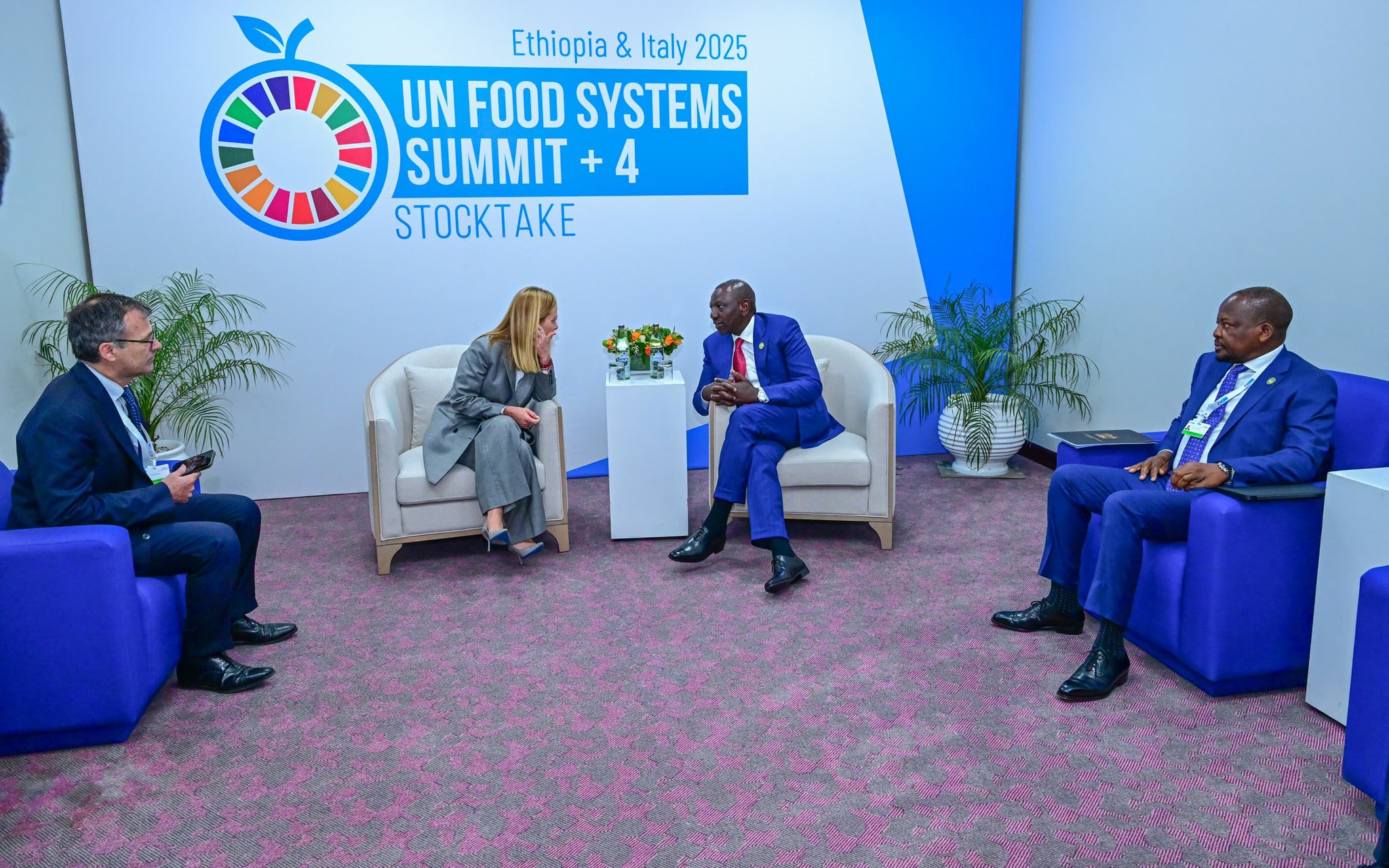The second United Nations Food Systems Summit officially opened in Addis Ababa on July 27, 2025, bringing together a diverse assembly of global leaders, international organisations, and development partners.
The summit, also referred to as the UN Food Systems Summit +4 (UNFSS+4), is a follow-up to the original 2021 summit and the first stocktaking moment held in 2023.
It reflects a renewed global commitment to accelerating the transformation of food systems in support of sustainable development.
Convened by the UN Secretary-General and co-hosted by the Governments of Ethiopia and Italy, the three-day event is being held at the United Nations Conference Centre.
It features a mix of thematic field visits, youth-led engagements, high-level plenary sessions, and technical discussions.
Among the prominent attendees are Ethiopian Prime Minister Abiy Ahmed, Italian Prime Minister Giorgia Meloni, Somali President Hassan Sheikh Mohamud, and Kenyan President William Ruto.

International figures such as UN Deputy Secretary-General Amina Mohammed and the heads of key UN agencies, including FAO and IFAD, are also participating.
The summit takes place against a backdrop of growing concern over global food insecurity, climate change, and economic inequality.
According to the UN Food Systems Hub, the UN Food Systems Summit is part of a broader effort to rethink how the world produces, distributes, and consumes food.
As explained by the Food and Agriculture Organization (FAO), the global food system is currently responsible for nearly one-third of all greenhouse gas emissions, while hundreds of millions still suffer from hunger and malnutrition.
Development agencies stated that a reformed food system is essential to achieving multiple Sustainable Development Goals (SDGs), from ending poverty and hunger to promoting health, climate resilience, and economic growth.
The UNFSS+4 Stocktaking Moment focuses on three main objectives: assessing the progress made by member states in transforming their food systems, strengthening accountability mechanisms, and unlocking investment opportunities.
According to UN agencies, these areas are vital for scaling up successful initiatives, ensuring transparency, and encouraging public-private partnerships that can help drive innovation and improve access to food and nutrition.
The summit also provides a platform for countries to showcase national-level transformations, share lessons learned, and highlight challenges that remain, particularly in fragile and conflict-affected regions.
The outcomes of the event are expected to include the UN Secretary-General’s Stocktaking Report, which will assess the global state of food systems, and a Chair’s Summary.
A special focus will also be placed on the perspectives of non-state actors through a “voices from the ground” report.
For African countries, the summit holds significant promise. As stated in regional assessments by the UN Economic Commission for Africa and the International Fund for Agricultural Development, African nations face unique vulnerabilities in their food systems, including reliance on rain-fed agriculture, inadequate infrastructure, and exposure to climate shocks.
The summit offers an opportunity for these countries to attract investment, scale up innovations such as climate-smart agriculture, and improve food sovereignty.
The UN Food Systems Summit is not just a diplomatic event; it is a global action platform.

